- Home
- Nancy Buckingham
The Other Cathy Page 3
The Other Cathy Read online
Page 3
The man she had declined to discuss with Bernard had not been out of her mind for an instant since Uncle Randolph’s revelation of yesterday. Sutcliffe – Matthew Sutcliffe, her father’s slayer. The man who, out of blind unreasoning hatred, had sought revenge for some imagined grievance and viciously struck her father down while he was alone at the mill one evening adjusting a new power loom. She had been only four years old at the time, yet with unbearable clarity she could remember hearing his name on everybody’s lips, her poor mother crying it out in agony; the servants whispering it behind their hands. Tried and found guilty of manslaughter, Matthew Sutcliffe had been sentenced to transportation to a penal settlement for a term of fourteen years; which had seemed, then, the same as saying for all time. It was not envisaged that he would be heard of again.
Now the man had returned to the Brackle Valley as the wealthy tenant of one of the grandest houses in the district. His own father, before his death many years ago, had been nothing higher than the overlooker at the mill; so how was it possible that Matthew Sutcliffe, a convicted felon, had acquired a fortune and the trappings of a gentleman?
The remembrance that she had smiled upon him, viewed him with approval – much more than mere approval, Emma bleakly acknowledged – made her wince with humiliation. Thank heaven her uncle had not been deceived as she and Aunt Chloe had been. Now that the truth was out, Matthew Sutcliffe would be shunned by every decent-minded person. He would soon find there was no place for him here. With an effort she buried her hurt and went indoors to find Cathy.
Directly dinner was over on this special day all the servants were free to go to the funfair. The family was not putting in an appearance until early evening, after a plentiful supper of cold dressed meat, fresh herbs, fruits and sweetmeats that was set out on the sideboard. As soon as they had left the table and donned bonnets and gloves, Randolph settled the ladies in the wagonette, taking the reins himself. They passed through the deserted village, the iron-clad wheels echoing hollowly as they clattered over the cobblestones; everybody had gone to the fair, and even the beer houses were empty. But from the direction of Spinners’ Meadow came a drift of music and sounds of jollification.
‘How disgraceful!’ exclaimed Chloe, her face screwed up in disapproval. ‘It sounds as if they are well-nigh intoxicated already. It is high time the drinking booths were forbidden at these fairs.’
Randolph glanced round at his sister with a chuckle. ‘Live and let live, woman! The fair does no harm, and my mill hands work all the better afterwards.’
Cathy was looking palely pretty in her apple-green gown under a cloak of a darker shade of green, and a straw bonnet trimmed with flowers; an outfit made only four weeks ago for the Wakes, when the mill was closed for the annual day’s holiday and Randolph had taken his family on a seaside excursion train to Scarborough. Already, Emma noted despondently, the gown fell loosely over Cathy’s wasting frame, and would need to be taken in before she wore it again.
‘Seth says there is a merry-go-round with golden horses this year,’ Cathy said, in a quiver of restlessness on the padded leather seat. ‘He saw the men erecting it yesterday. I’m going to have lots of rides.’
‘We’ll have to see about that, dearest,’ Emma said cautiously. ‘Remember Bernard told you not to get overexcited. But there are sure to be plenty of things you will enjoy seeing.’
At the entrance of the fairground Bernard was hovering in wait for them, and came forward to help the ladies alight. Randolph beckoned two boys of about twelve, who were employed as scribbler feeders at the mill, and engaged them to mind the carriage and horses, promising them twopence each for their pains.
As if by magic, the jostling, nudging, boisterous throng parted at the approach of Mr Hardaker and his party. Randolph nodded amiably here and there as they strolled between the flag-decorated booths. There was a fat lady, the fattest lady in all Europe, a hoarse-voiced patterer assured them; a ‘guaranteed genuine Red Indian chief and his squaw’; a sword swallower; a pair of jugglers; and a man with a performing bear. They paused outside the tent containing the incredible eight-legged sheep, but decided the menagerie would be more enjoyable. Inside, they all stared in fascination at the zebra, which none of them had ever seen before. At the peepshow they came across Jacob Hoad and his wife, stiffly smart in their Sunday-best clothes, peering through the eyepieces at macabre historical scenes from the Tower of London. The couple were abashed to find the family waiting their turns behind them, and melted away quickly. Randolph bought gingerbread men for the two girls and the party moved on towards the corner of the meadow where the merry-go-round had been erected, guided by the wheezy strains of its mechanical organ. Cathy was pressing forward eagerly, but suddenly halted in her tracks.
‘It – it’s too crowded,’ she objected.
And a good thing too, thought Emma, who doubted the wisdom of letting her cousin go on the fast whirling roundabout. Then she saw Cathy’s face, a moment ago flushed with excitement but now drained of colour. Her hands were trembling and tears glistened in her eyes. Following the direction of her gaze Emma spotted Seth, resplendent in his new jacket, helping a girl to mount one of the golden horses. She was dark-haired and pretty, with full red lips parted in a laugh, and Seth’s arms were close around her waist.
Emma sighed inwardly. It really was too absurd for Cathy to be jealous and possessive about Seth. She ought to realise she could not cling for ever to their childhood friendship; sooner or later she must expect him to take a normal interest in girls of his own sort. Deliberately, in a level voice Emma said, ‘I believe that’s Will Lister’s daughter – you know, he’s a dyer at the mill. She’s pretty, isn’t she, Cathy?’
‘I can’t imagine what Seth can see in her,’ Cathy retorted petulantly, ‘with that silly turned-up nose, and that awful cheap red dress!’
‘Cathy, that’s most unkind! Bessie is one of a large family, and with all those mouths to feed the Listers haven’t much left over to spend on clothes. I think her dress looks very nice. Now, come on, if you don’t want to go on the merry-go-round, let’s find something else to do.’
Later on the party emerged from a performance by a troupe of Hungarian tumblers to find dusk falling, and smoky tallow flares were being lighted all round the fairground. The hubbub was louder and merrier, and here and there scuffles broke out between men somewhat the worse for liquor. Chloe hitched her plaid shawl round her shoulders and said disdainfully that it was time to go. Randolph however was not to be persuaded; conscious of being the most notable figure there and in some sense a benefactor, he was thoroughly enjoying himself and insisted on another turn of the fairground in case they had missed anything.
Walking beside Bernard and Cathy a few paces behind her uncle and aunt, Emma’s attention was caught by a tall figure among a group of men at the rifle range. He was standing with his back to her, taking careful aim at his target, but she knew him instantly. As she watched, Matthew Sutcliffe handed the gun back to the showman and laughingly accepted a prize of some tawdry glass beads, which he promptly presented to a small girl in the crowd, to the child’s great delight. Then he turned away from the rifle range, moving in their direction. Uncle Randolph would avoid him, of course, or simply pass by with a freezing nod.
Emma steeled herself to cut him dead if he dared to claim her acquaintance by so much as a glance. Not that he would, now the truth of his identity was out. But when Matthew Sutcliffe noticed the party he came boldly up to them, raising his wide-brimmed felt hat to Aunt Chloe and bowing to Uncle Randolph. Her heart turning over, Emma waited to see him contemptuously put in his place, but to her utter astonishment, her uncle not only returned the bow but stopped, and seemed to be addressing the man, if not effusively, then by no means as a person to be snubbed. They had no alternative but to stop too, and while she stood tense and trembling, staring her disbelief, Matthew Sutcliffe looked past Uncle Randolph and met her eyes, half smiling, his hand again reaching to his hat. Emma fought down an u
rge to rush forward and berate him, to pour out the bitter loathing she felt. Instead, dropping Cathy’s arm, she turned her back.
‘Look!’ she exclaimed to Bernard with false gaiety. ‘There’s a gypsy woman telling fortunes. Shall we let her tell ours?’
‘If you wish.’ Nothing loath, Bernard led her out of earshot, followed at once by Cathy. ‘Why are you so anxious to avoid that man, Emma? Who is he?’
‘Can you not guess?’
‘Sutcliffe!’ Covertly, Bernard looked back, ‘So that he! I must say in fairness, he is every inch a gentleman. I am not surprised that —’ He broke off, not knowing how to continue.
The gypsy wore a grimy red shawl drawn over her head, framing an old leathery face; her bright-black eyes had not missed Emma’s show of interest in her.
‘Gi’e us a penny, kind gennleman, and I’ll tell yon young ladies what the future do hold in store.’
Bernard smiled at Cathy who said suddenly, with great intensity, ‘Yes, please do! Give her a penny.’
The gnarled brown fingers closed like claws over the coin and dropped it into a pocket hidden in the multifarious layers of her tattered skirts. Taking Cathy’s hand she bent over it for a moment, then looked up sharply into her face. It appeared to Emma that she shuddered, and her words sounded evasive.
‘Ye’ll have all ye wish for, dearie! Aye, never fear – everything ye could wish for.’
Letting go of Cathy’s hand she seized Emma’s. ‘Come on, dearie, it’s your turn now.’
Emma was suddenly reluctant, but the gypsy’s glittering black eyes seemed to pierce through her and take away her power to move. She found the touch of a coarse fingertip tracing her palm unnerving, as though her very soul was being bared to the old crone.”
‘I see a voyage across the sea, dearie. Ye’ll go away from here to some distant land where no one knows ye.’ Her eyes sharpened. ‘Is that yer heart’s desire?’
Emma shook her head weakly, wishing she could turn away. But that might be to come face to face once more with Matthew Sutcliffe, so she submitted to the gypsy’s further prophesies.
‘I see a dark man – there is bitterness and anger —’ Noticing that Bernard was fair, she added slyly, ‘Gi’e us another penny, kind gennleman, and I’ll tell ye the one she’ll wed.’
‘Be off with you!’ he ordered. ‘You’ll get no more from me.’
Her eyes flashed with spite. ‘Is it afeard y’are to have me tell the naked truth? The future’s dark, aye, and there’s misery and suffering for y’all.’
‘Here,’ said Bernard, dipping into his pocket for another coin. ‘Take this and be gone. We want no more of your horrible lies.’
She dropped Emma’s hand and snatched the penny, secreting it away with the other. ‘Lies, are they?’ she cackled as she shuffled off. ‘Ye’ll see – aye, yell come to see if I’m not right!’
Cathy was lost in her private joy. ‘Did you hear, Emma, did you hear? She said I shall have everything I wish for.’
Emma managed a smile, taking her cousin’s thin arm and giving it a squeeze. She caught Bernard’s worried glance.
‘Dreadful old hag,’ he muttered. ‘Charlatan! Don’t let what she said upset you, Emma.’
‘No, of course I won’t.’
But she did feel upset, even afraid. The old woman had somehow reminded her of Ursly and she had an irrational conviction that it was Ursly warning her against the tall dark man; Ursly foretelling a future of misery and suffering. She told herself sternly that this was absurd. It was just the routine patter of a spiteful old gypsy woman, and meant nothing.
‘Emma, what were you thinking of? It was most rude of you to turn your back so pointedly.’ Her uncle’s voice, from close behind her, was chilly with rebuke. His displeasure switched to Bernard. ‘Mr Sutcliffe clearly expected me to introduce you, but how could I when you moved away like that? Fortunately, he was gentleman enough to pretend not to notice your discourtesy.’
Bernard looked distressed and was at a loss for a satisfactory reply, but Emma cut in hotly without heeding her words. ‘Uncle, how could you talk to that man? How could you even acknowledge him? After what you said yesterday, I didn’t believe my eyes when I saw you stop and speak to him.’
‘I’ll not have you question my behaviour!’ Randolph glared at Emma from beneath his heavy brows. ‘Happen I know a deal more about the world and its ways than a chit of a girl like you,’
‘If knowing about the world and its ways means hobnobbing with that vile man, then I am glad I don’t know very much.’
‘Be silent!’ he ordered, crimson with anger.
Chloe was embarrassed, aware that people were standing around enjoying the novel spectacle of the Hardakers airing their differences in public, and she tried to pacify them in an urgent whisper.
‘Randolph, please. Emma forgot herself, she scarcely knew what she was saying.’ She appealed to her niece, forcing a thin smile. ‘I understand how you feel, child, believe me. But you must accept what your uncle says. He has a far wiser head on his shoulders than you. He has made up his mind that the Hardakers have no alternative but to meet Mr Sutcliffe on social terms, because if we don’t others will, if only to score off us. So we must put aside our private feelings and make the best of it. Mr Sutcliffe will be dining with us next Wednesday.’
Emma stared at them in shocked bewilderment. ‘You have invited him after all to dine at Bracklegarth Hall?’
Randolph nodded. ‘I have, and he’s accepted.’
‘Then you need not expect me to be present at table,’ she said mutinously.
‘You’ll do as you’re told, girl!’
‘I will not! Not when it offends against everything that is right and decent and civilised.’
Randolph, glowering down at her, felt urged to box her ears. Curse the girl for her stubborn spirit! Yet he felt a sneaking pride and respect, too. It was only in Emma that the true grit of the Hardakers revealed itself. It certainly wasn’t to be found in Blanche’s pair of spoilt brats; nor in poor little Cathy, the replica of her frail and beautiful mother. But Emma’s spirit had to be broken, just as a wild mare’s did. He could not have a mere girl flouting his authority.
He glared round at them all. ‘You are not to say another word, any of you,’ he rapped out. ‘Now, back to the wagonette. We’re going home.’
Chapter Four
On Sunday morning, after the emotional excitement of the fair, Cathy felt too tired to get up for breakfast, and Emma seized upon this excuse to avoid the dining room. She was still furious with Uncle Randolph and doubted if she could bring herself to speak civilly to him. She was not permitted to postpone the encounter for long, for at ten o’clock Hoad came with a summons to attend the master in his study. Emma dared not refuse, but as a minor act of defiance she decided to go just as she was, without troubling to tidy her hair or straighten her lace collar and sleeve engageantes. Uncle Randolph expected her to take pains with her appearance, as he had every right to do, having insisted when she came to live at the Hall on making himself responsible for her wardrobe and other expenses, thereby leaving her own modest inheritance untouched.
The study was a small room adjoining the parlour. As Emma entered Randolph was standing at the long window, from which he obtained an unimpeded view of his mill buildings down by the river. He half turned his head to acknowledge her presence, then glanced away again. Standing there with his legs splayed and hands clasped behind a straight, unyielding back, he looked every bit as formidable a figure as Grandfather Hardaker, whose full length portrait in oils hung above the fireplace.
‘Are you going to apologise to me, Emma?’
She was startled, though what else could she have expected? She waited until she had command over her voice, then began, ‘If I was rude to you, uncle, I —’
‘Of course you were rude!’ he roared, spinning round to face her. ‘Damnably rude! And I expect you to beg my pardon for it.’
‘Then I do! But I cannot retr
act the other things I said.’
Her back erect as his, she went on, ‘Uncle Randolph, your attitude towards Matthew Sutcliffe amazes me, bewilders me. When you first discovered who he really was you were very angry, as I would have expected. Yet last evening at the fair you seemed to greet him as a friend.’
‘Not as a friend, as a neighbour. Don’t you know that it ill becomes any man to quarrel with his neighbour?’
Emma wanted to retort that it ill became any man to associate with a vicious criminal. But instead she said in a tight, choked voice, ‘I have no intention of quarrelling with Matthew Sutcliffe. I despise him utterly, and I shall take care to avoid meeting him in the future.’
‘You’ll have to meet him,’ said Randolph curtly. ‘As your aunt told you, he will be eating here on Wednesday night.’
‘I shall keep to my room.’
‘You’ll do no such thing!’ he rapped. Then taking a grip on himself, Randolph came and placed his hands on Emma’s shoulders, and looked down into her face. ‘Don’t let the two of us fall out, lass. I’ve a very high opinion of you, d’you know that? This house has been a sight more cheerful since you’ve been living here, and I’m well aware of all you do for Cathy. It doesn’t go unappreciated, I promise you. But on this question of Sutcliffe you must be guided by me. I know it’s hard on you, Emma, but these old enmities can’t be kept up for ever, don’t you see?’
‘But Matthew Sutcliffe killed my father,’ she protested, ‘your brother, Uncle Randolph! ‘
‘Aye, and he’s paid the penalty for it. Fourteen years’ transportation he was sentenced to. The slate’s been wiped clean and he has a right now to be accepted into decent society.”
Emma said huskily, ‘How can you ask me to overlook that it was his hand which struck my father down?’
‘But not with any intent to kill him, lass, and that’s what makes all the difference. There was never any question of it being murder. The court’s verdict was plain. No malice aforethought, and therefore manslaughter.’

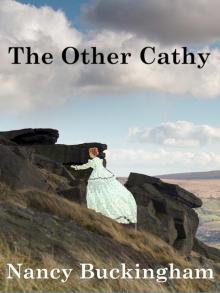 The Other Cathy
The Other Cathy Design for Murder
Design for Murder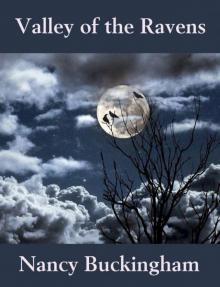 Valley of the Ravens
Valley of the Ravens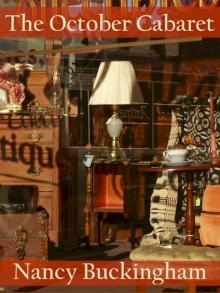 The October Cabaret
The October Cabaret Model Murder
Model Murder Murder in the Cotswolds
Murder in the Cotswolds Deadly Deceit
Deadly Deceit Return to Vienna
Return to Vienna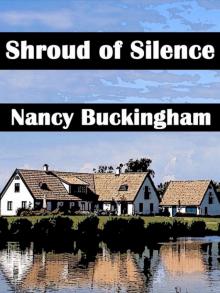 Shroud of Silence
Shroud of Silence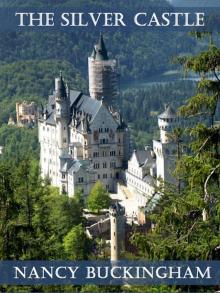 The Silver Castle
The Silver Castle A Cotswolds Legacy
A Cotswolds Legacy Marianna
Marianna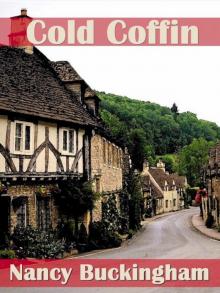 Cold Coffin
Cold Coffin Kiss of Hot Sun
Kiss of Hot Sun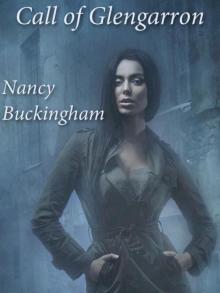 Call of Glengarron
Call of Glengarron Quest for Alexis
Quest for Alexis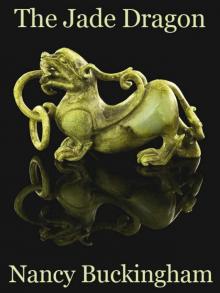 The Jade Dragon
The Jade Dragon